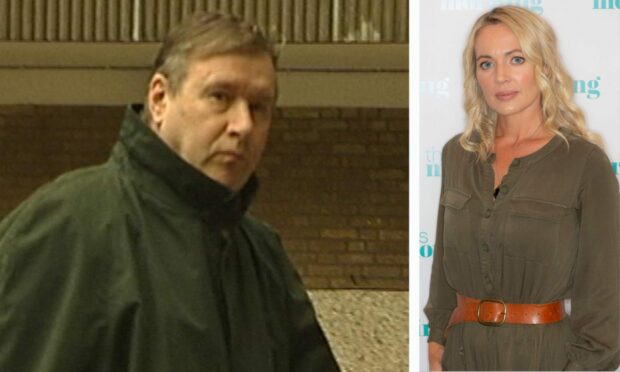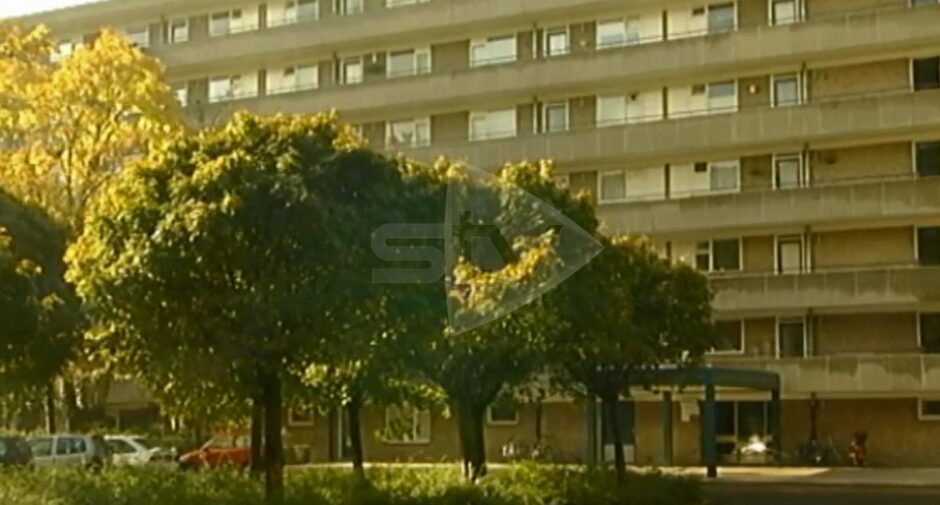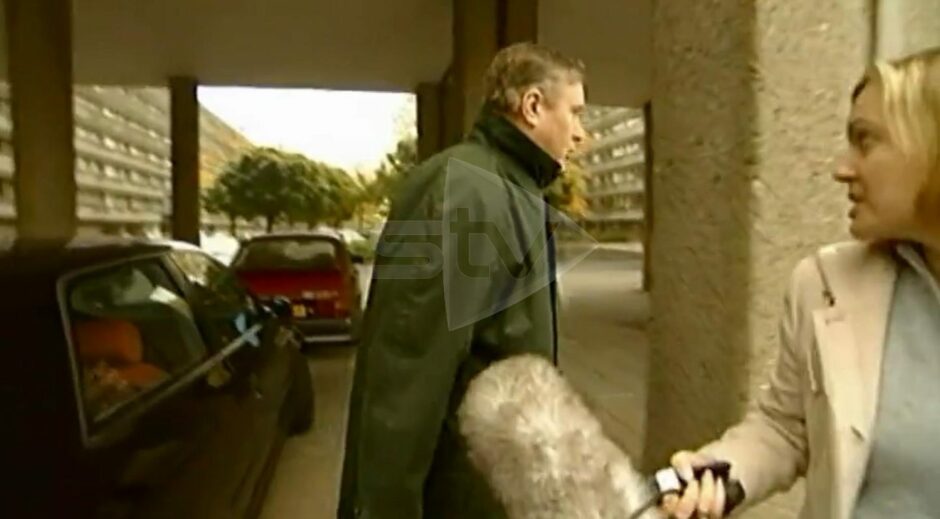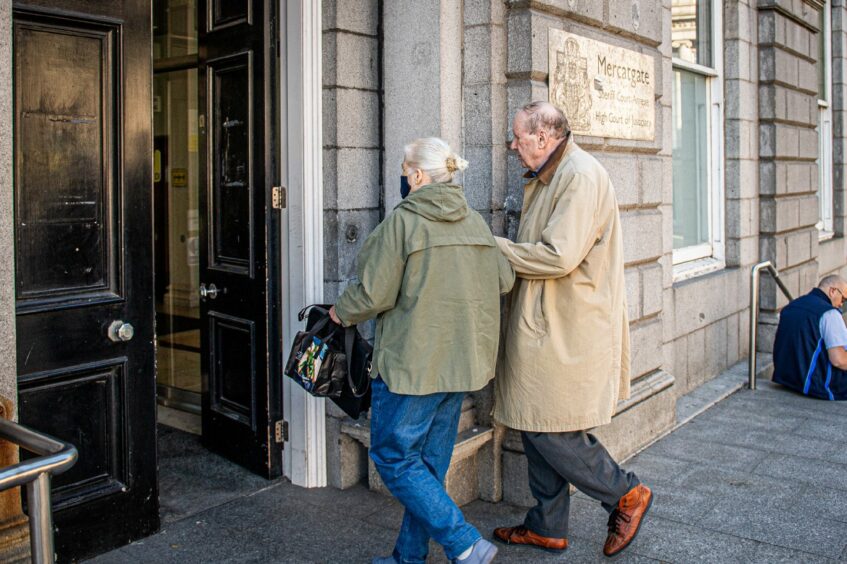Twenty years ago in a car park in the university town of Liden in the Netherlands, I came face to face with a killer.
Dr Christopher Harrisson had been living freely since the murder of his ex-wife Dr Brenda Page in Aberdeen in 1978.
He’d only ever been questioned once about the crime and that was by detectives hours after her body was found in the bedroom of her small west end flat. He was released without charge.
The next person to ask him if he had killed her was me. I was 22, he was 62. I was working on a cold case documentary series Unsolved for what was then Grampian TV, now STV.
Myself, my producer Donald John Macdonald, and camera operator Alison Arijs had been on “stake out” for two days. Our necks were sore from peering up towards the exposed balconies of the apartment block.
DJ, as he was known, had just returned from a food run with huge cream buns. They were not our preferred snack but by that point, we’d have eaten anything.
Right on cue, mouth open biting down on the bun, the cream spilling on to my cheeks, Murphy’s Law occurred and there was movement from the door.
Hands shaking, I grasped for the only photograph I had from the 1970s to identify the looming man I was about to confront.
The figure who emerged from the door was tall. That’s was enough to confirm it was likely Dr Harrisson.
We threw the cream buns down, grabbed the camera and microphone and waited at the side of our rented people-carrier until he made it down the lift and out the front door of the building.
Heart racing, cream bun sticking in my oesophagus, gripping the handle of the furry boom microphone I stepped towards him.
“Mr Harrisson, Mr Harrisson, Mr Harrisson.” He clocked the camera behind me and picked up his pace. It was clear he was not going to take us on as he marched away. I’m not a fan of ambush journalism but on this occasion, I had no choice.
“We’re from Grampian Television. We’d like to talk to you about the murder of your ex wife Brenda Page.”
I had to go straight for the jugular not knowing if I’d have him in my sights for five seconds or five minutes.
“Many people believe you are responsible Mr Harrisson. Did you kill her?”
He batted away the boom mic I was pointing towards him and changed his direction. I scurried after him. His large strides meant I had to almost run to keep up.
“Mr Harrisson there was an interim interdict out against you because you’d threatened her with violence. Did you kill Brenda Page? Did you kill your ex wife Mr Harrisson? It’s a simple question.”
A stupid question, reflecting back on it now because, of course, he was unlikely to answer but I had to ask it.
I was there on behalf of Dr Brenda Page, on behalf of her family, on behalf of her colleagues and loved ones. A ballsy thing to do given his alleged history, but the camera’s red light gave me a degree of confidence that he wouldn’t attack me.
“Why in the 25 years since her murder have you not once been in touch with the police to ask how the inquiry was going seeing as you were so clearly in love with her and obsessed with her?”
“Mr Harrisson why are you being so evasive? She’d be 58 now do you think about her much? Why aren’t you taking this moment to protest your innocence Mr Harrisson?”
His silence continued. His frustration obvious as he stopped a man on the path and explained to him in Dutch that we were bothering him. All he needed to do was say ‘no comment’ or ‘I hope they find her killer’ or ‘no it wasn’t me’. But he said nothing.
The entire confrontation lasted only minutes but it felt like much longer. He eventually walked through undergrowth and returned to his building.
My colleagues and I were pumped with adrenaline. We’d put the questions to him. It was better than not seeing him at all. He knew we were investigating Brenda’s murder and the story wasn’t going away.
Twenty years on I sat within metres of Dr Harrisson, I even had to open the door for him at court.
Instinctual etiquette holding a door open for an elderly gent walking behind me. For a split second, I considered if I should let it swing back but my decency overruled.
I watched him throughout the case scribbling in his notepad. I wonder what he was writing and for what purpose. He showed no emotion.
In the witness box, he was everything I expected. Aloof, eccentric, monotone, emotionless. He was likened to Dr Jekyll and Mr Hyde by the Advocate Depute Alex Prentice.
We only saw one side of him in court but I believe I saw a hint of the other bubbling underneath when I confronted him in 2003.
He looked considerably younger then. His exterior now makes it difficult to connect him with being a 37-year-old killer. But he is a killer. A killer who’d got away with murder for longer than I’ve been alive. His age does not diminish his evil.
I’m on his case again except this time I’m making history by being the first journalist in the UK to be granted permission to record the audio of the murder trial for a long-form podcast.
It’s an honour and a privilege particularly because of my long-standing connection to the case. As well as confronting him 20 years ago, I interviewed Brenda’s family, friends and colleagues and have desperately wanted justice for them and feared it would never come.
After the painful wait for the jury to return and deliver their eventual guilty verdict, I couldn’t help but feel the gravity of the moment and tears came to my eyes.
Journalists are not supposed to cry, especially in the press bench, but I cried for Brenda and for her family.
It seems unfair that he’s been living free all these years believing he’d outsmarted the police and justice system.
He’s now spent his first night in jail. It’s a cliche but better late than never.
And later this year the public will be able to hear every detail of the trial, the full wonder of brilliant geneticist Dr Brenda Page and witness justice being done in the most transparent way and her story and legacy will be around long after her killer dies in prison.




